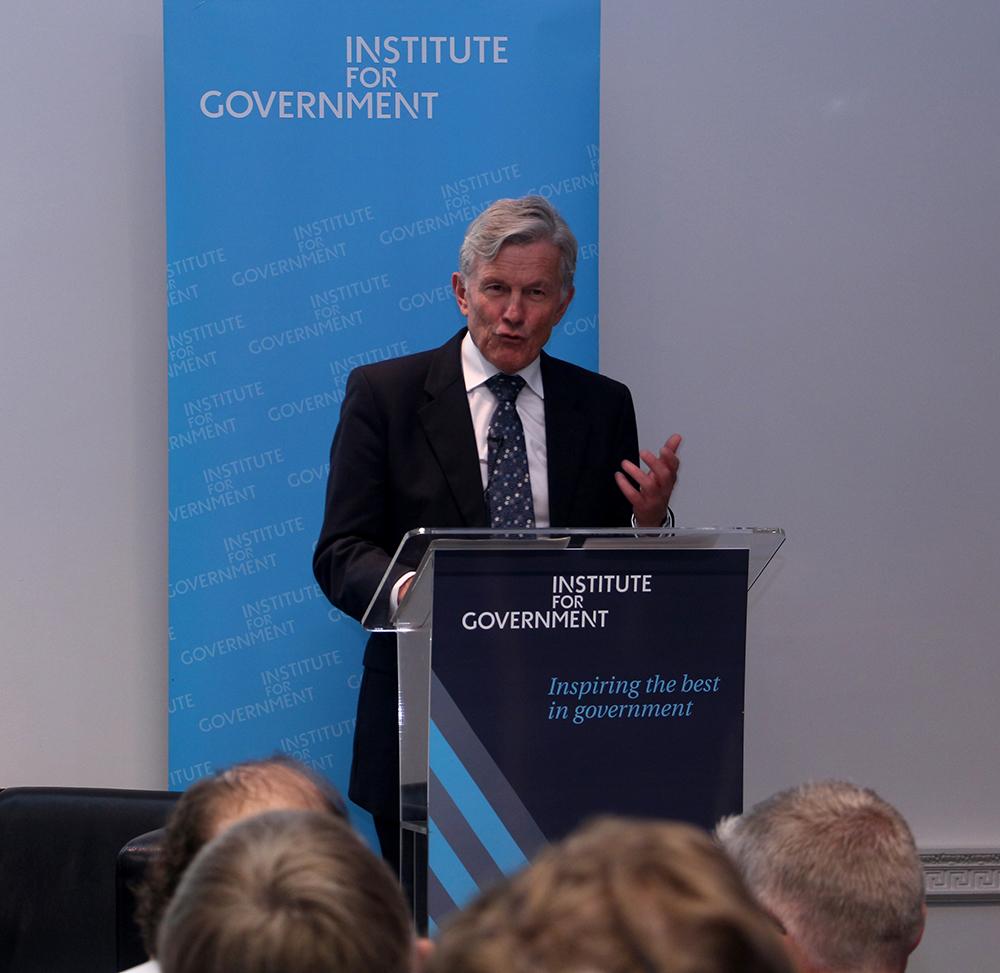The Comptroller and Auditor General and head of the National Audit Office, Sir Amyas Morse, spoke at the Institute for Government to mark the 150th anniversary of the role. Gavin Freeguard explains the headlines from his speech.

- Topic
- Policy making